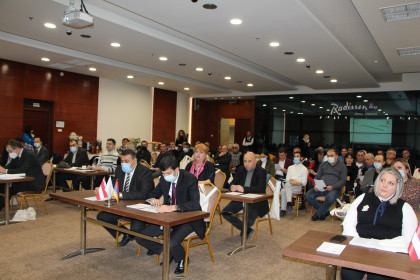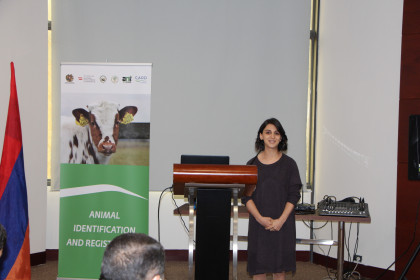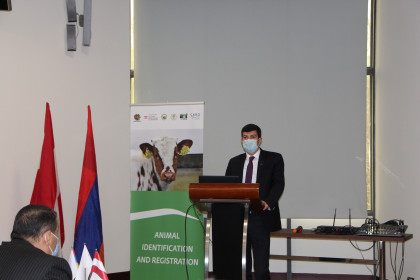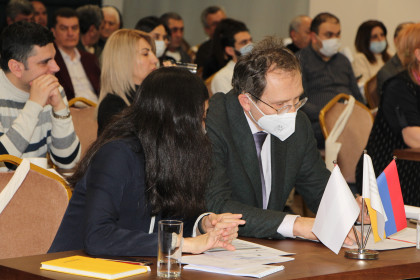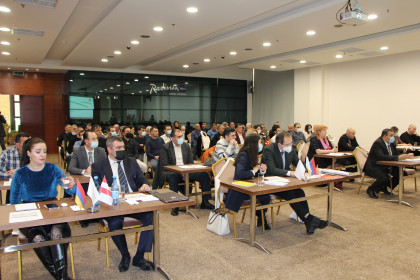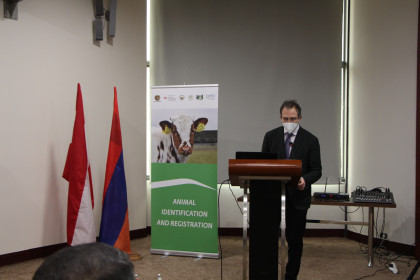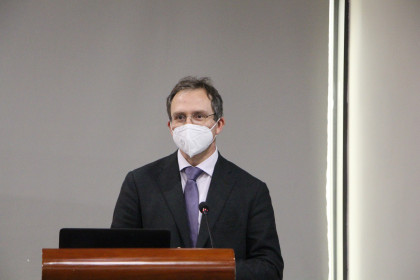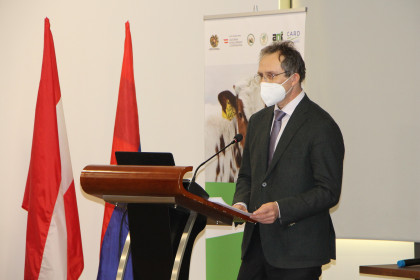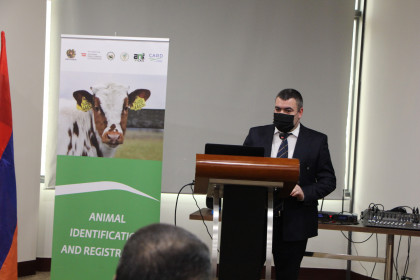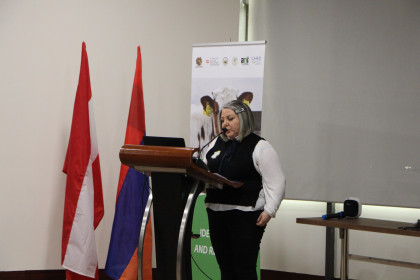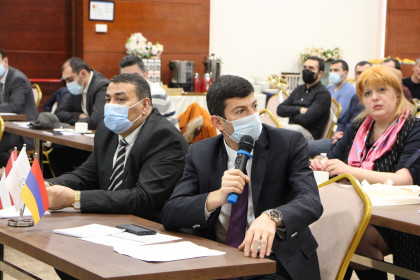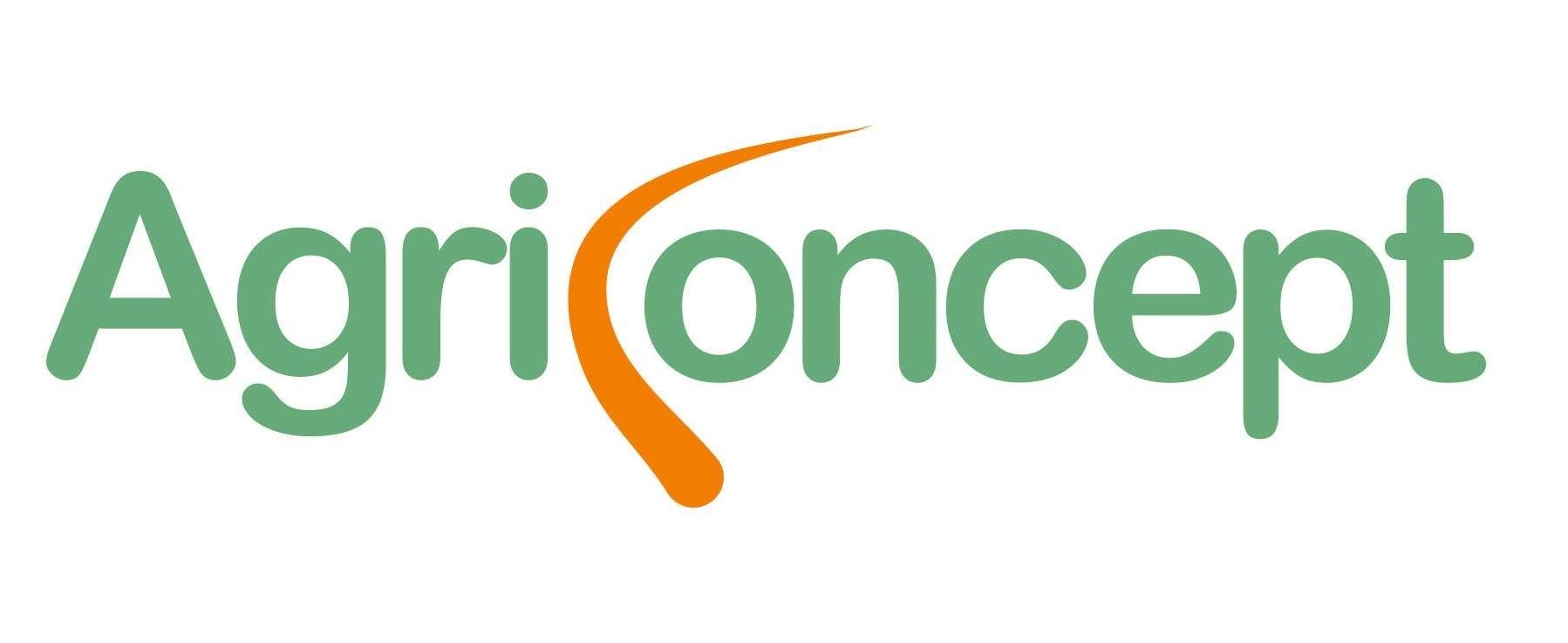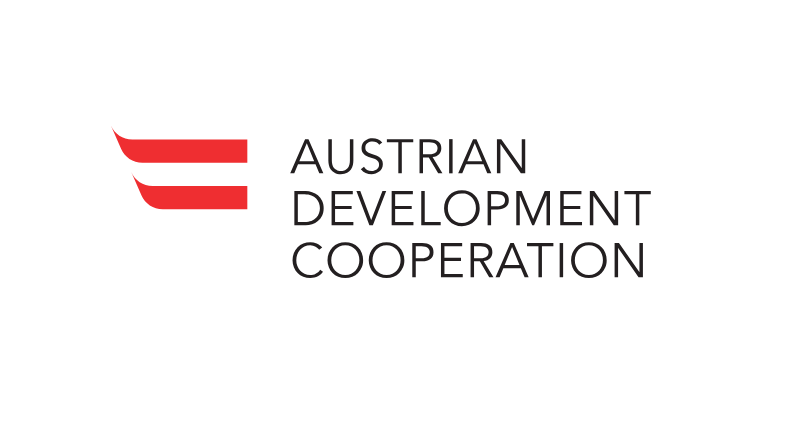Establishment of a Functional Animal Identification and Registration (AIR) System in Armenia
SUPPORTED BY
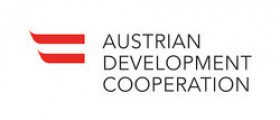
DESCRIPTION
Country/Region
Armenia/Kotayk, Aragatsotn, Gegharkunik, Shirak, Lori, Tavush, Ararat, Armavir, Vayots Dzor, Syunik
Planned Project execution period:
01 December 2021 - 31 May 2025
Agriculture plays a key role in economic and social life of Armenia. In 2018, about 37% of Armenia’s population lived in rural areas, and 1/3 of the total labor force was employed in agriculture. There were around 230-250,000 households living in villages. Approximately one third of the county’s total labor force was employed in agriculture.
Animal identification and registration is the base of any future system for food safety, animal health and animal breeding. For this reason, there is a growing demand for identification of livestock and livestock products, from origin to consumption. Animal identification and animal traceability are tools for addressing animal health (including zoonosis), food safety and animal breeding issues. These tools can significantly improve the effectiveness of activities such as the management of disease outbreaks and food safety incidents, vaccination programs, animal husbandry, zoning or compartmentalization, surveillance, early response and notification systems. They can also improve animal movement control, inspection, certification, fair practices in trade and utilization of veterinary drugs, feed and pesticides at the farm, traceability of animals and products of animal origin, animal welfare and productivity.
All above mentioned factors will have a significant impact on economic development by creating new trade opportunities, as well as improve the quality of production, animal productivity, and export of livestock products, farm incomes and consumer health nationwide.
In general, there is a lack of experience and understanding of the AIR system among all stakeholders in the country: lack of experience among government officials responsible for designing and operating the sustainable animal identification and registration system, lack of knowledge and skills among veterinarians to implement the system, and lack of awareness among farmers and consumers regarding the benefits of the system.
CARD in collaboration with RA MoE has formulated a project that will establish a functional and sustainable animal identification and registration system based on the needs and requirements of the project stakeholders. The proposed AIR project will enable producers to produce more and safer products, and to access international markets. It will prevent unsafe food movement, ensuring quick and accurate handling of emergencies. It will enable public and private agencies to access animal movement data and better monitor health and breeding activities.
The overarching long-term impact of the proposed project is: Improved animal health, food safety, higher productivity, trade and farm income.
To achieve this impact, the project entails the following outcome:
Countrywide animal identification and registration (AIR) system established and functioning.
The following four outputs are expected to be achieved as a result of the project implementation:
- Improved regulatory framework in the field of AIR and effective application of that framework
- Improved infrastructure to facilitate the establishment of a user-friendly/practical /simple and sustainable AIR system
- Strengthened technical and organizational capacities of state officials, veterinarians and livestock farmers on AIR, food safety, farm management, animal pedigree breeding, environmental protection and animal welfare/protection
- Enhanced benefits for women to become aware of their economic, labor and human rights.
Apr 09 2023
The "AI&R system in Austria and Armenia" workshop
On March 30, the "AI&R system in Austria and Armenia" workshop was organized. Rudolf Moser, AI&R expert, and international expert from the "AgrarMarkt Austria" organization was the special guest and speaker of the workshop. Arman Khojoyan, RA Deputy Minister of Economy, Klaus Kapper, Head of the ADA Yerevan office, Garnik Hovhannisyan, director of "Center for Agricultural Services" SNCO, Gagik Sardaryan, director of CARD Foundation, were present at the workshop. During the workshop, the expert presented the AI&R system in Austria and made proposals for reforms and incentives for the implementation of the AI&R system in RA. * The "AI&R system in Austria and Armenia" workshop was organized with the funding of the Austr...
Apr 09 2023
AI&R expert Rudolf Moser's visit to Armenia
From March 27 to March 31, we hosted Rudolf Moser - an international expert of the "AgrarMarkt Austria" organization, an Austrian AI&R expert, in Armenia. On the first day of the visit, the expert got acquainted with the CARD Foundation's AI&R project team, then meetings were held in state institutions with RA Deputy Minister of Economy - Arman Khojoyan, Director of "Center for Agricultural Services" SNCO - Garnik Hovhannisyan and Head of the RA Food Safety Inspection Body - Armen Hayrapetyan. During the meetings, Rudolf Moser got acquainted with the process of the "Animal Identification and Registration project in the RA", shared the Austrian experience, and made suggestions for improving the project. The expert also visited two fa...
Oct 13 2023
Institutional reform in the field of agricultural education
The Animal Identification and Registration project in RA is entering the most important structural phase. One of the institutional reforms of this stage is the inclusion of a course on Animal Identification and Registration in the curriculum of the Veterinary Medicine and Animal Husbandry Faculty of the Armenian National Agrarian University. On October 13, another lesson on Animal Identification and Registration took place, during which the students got acquainted with the identification technique, the tools, and the accessories used. During the lessons, they will also get to know the "ANI PAS" electronic system, getting theoretical and practical knowledge about the entire process of identification and registration. The Cattle Animal Identification and Regist...

